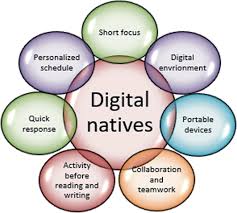Social media
I think the internet has completely changed the way we form opinions and talk to each other. It used to be that we heard about major issues from the news or maybe a teacher or parent. Now it feels like opinions come at us nonstop through TikToks, tweets, and Instagram stories. To me, this makes everything feel faster and more intense. Public opinion can shift in a matter of hours, depending on what’s trending or who posts what.
Social media doesn’t just share ideas, it sells them. The way something is said matters just as much as what’s being said. I think that’s why people care so much about aesthetics and tone. Pearson et al. (2021) say that persuasive messages work best when they connect emotionally with the audience, and I definitely see that all the time. Posts that go viral usually tap into feelings like anger, pride, or hope. To me, that kind of emotional pull is powerful, but it can also be manipulative if we’re not paying attention. I’ve also thought a lot about how people online use communication strategies without even realizing it. Crusius and Channell (2016) talk about how arguments are more effective when they’re shaped around the values of the audience. I see this a lot on social media when people tailor their posts to a specific group or trend. People seem to care more about being shared or liked than actually starting a meaningful conversation.
The impact on society and democracy seems to be a mixed bag. On one side, I love that people who used to be left out of big conversations now have a place to speak. I think movements like #MeToo and #BlackLivesMatter are great examples of how the internet can bring people together and make real change happen. On the other side, I worry about how quickly misinformation spreads. I think the 2016 election showed how easily people can be influenced by false or misleading content, and that’s honestly scary. Personally, I’ve felt how all this affects relationships too. I think it’s harder to have deep, respectful conversations online. It feels like everyone’s trying to be right instead of actually listening. In Case Study 30, Mazer (2019) talks about how the Lilly Pulitzer campaign seemed fun and spontaneous but was actually super planned out. That really made me think about how much of what we see online is designed to look natural even when it’s not. To me, that blurs the line between real and fake in a way that’s kind of unsettling. Social media gives us a lot of power, but it also puts a lot of pressure on us to constantly have something to say. I’m trying to be more mindful about what I share and why. To me, being part of this digital world means being thoughtful, skeptical, and always willing to learn more before jumping in.
Works Cited:
Crusius, T., & Channell, C. (2016). The aims of argument: A text and reader (8th ed.). McGraw-Hill Education.
Mazer, J. P. (2019). Communication and social media: Understanding and managing communication challenges in a networked society. Oxford University Press.
Pearson, J. C., Nelson, P. E., Titsworth, S., & Hosek, A. M. (2021). Human communication (7th ed.). McGraw-Hill Education.



Comments
Post a Comment